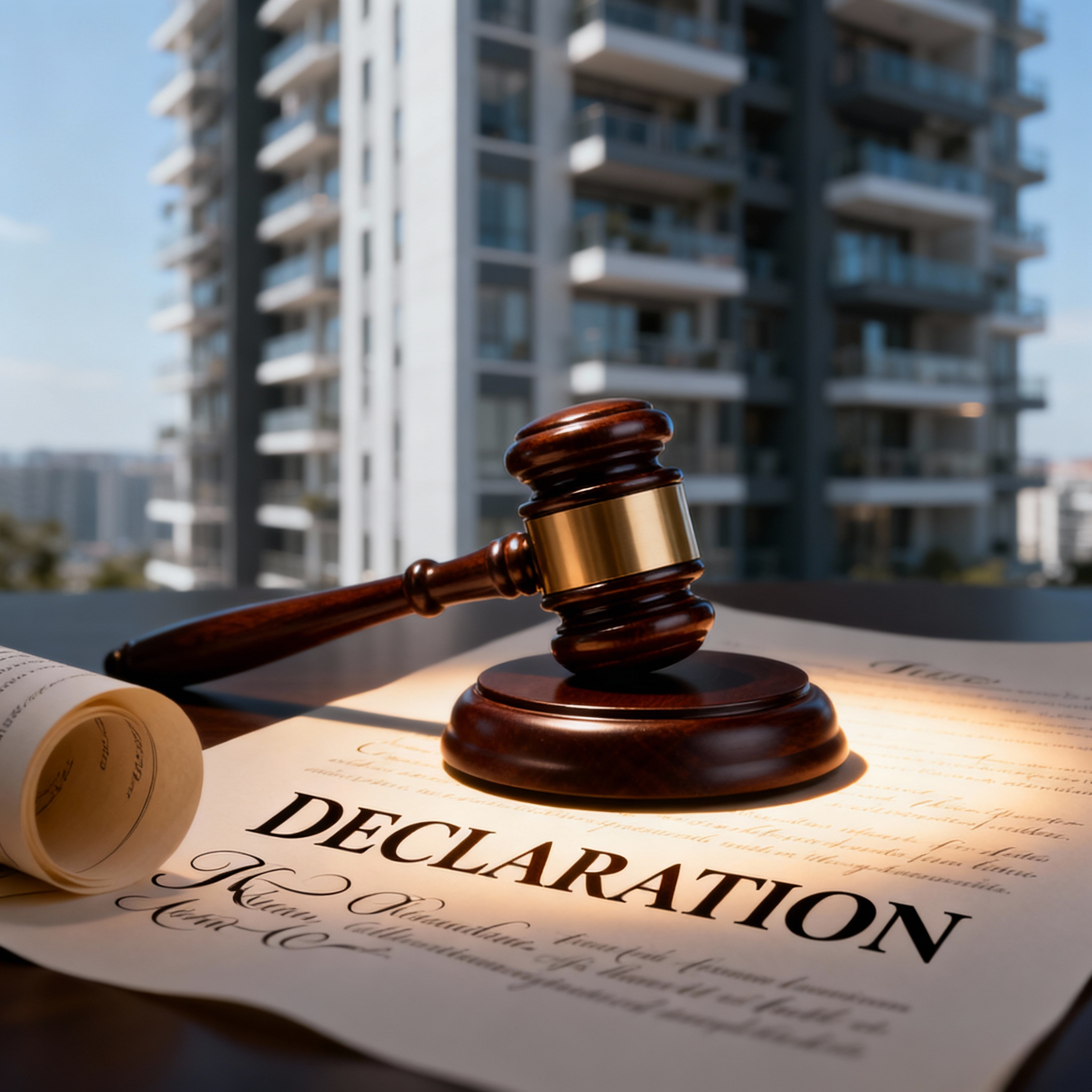Understanding Your Rights: New Government Order Affirms Supremacy of the Declaration
A recent Government Order (G.O.(Ms) No.6/2025/HSG dated 27-07-2025) has provided a significant clarification on the legal rights of apartment owners across Kerala. This development, which stems from a Public Interest Litigation (PIL) initiated by concerned apartment owners before the High Court, powerfully affirms that the promises made in the original Sale Deeds and the Declaration are legally supreme and cannot be overridden by the decisions of a managing committee or a simple majority of residents.
What the Government Order Says and Why It Matters
The Government Order was issued to ensure the “effective implementation of the Kerala Apartment Ownership Act, 1983.” It specifically directs the Kerala Real Estate Regulatory Authority (KRERA) to enforce a critical clause in all sale agreements. This clause legally binds the builder to ensure the entire project complies with the Kerala Apartment Ownership Act.
In simple terms, this means that the Declaration—the “constitution” of an apartment complex—is not just a guideline. It is the supreme law of the community. The rights it grants to each owner, such as the right to undivided common areas, are legally protected from the moment of purchase.
The Core Issue: Protecting Individual Rights
A current dispute within one prominent high-rise building serves as a clear illustration of this principle: can a simple majority vote to partition a common area like a children’s play-zone when the Declaration explicitly states that such areas must remain undivided and can only be altered with the unanimous consent of all owners?
Understanding the Limits of Majority Rule
For any apartment community to function harmoniously, it is crucial to understand where a majority decision has precedence and where it is bound by the supreme law of the Declaration.
| When the Majority (General Body) Decides | When the Declaration is Supreme (Unanimous or Super-Majority Consent Required) |
| These are operational and administrative matters that do not alter the fundamental structure or vested property rights of an owner. | These are fundamental rights and structural changes that affect the core nature of the property as promised in the Sale Deed and Declaration. |
| Examples: | Examples: |
| ✔️ Passing the annual budget and setting monthly maintenance fees. | ❌ Altering or partitioning any common area (e.g., children’s play area, lobbies, gardens). This requires unanimous consent. |
| ✔️ Electing members to the Managing Committee. | ❌ Changing the designated use of a common facility (e.g., converting an office into a recreation room). |
| ✔️ Approving routine repair and maintenance work. | ❌ Changing the percentage of any owner’s Undivided Share (UDS) in the land. |
| ✔️ Making rules for the use of common facilities (e.g., swimming pool timings, booking the banquet hall). | ❌ Making any structural additions or deletions to the building that were not in the original plan. |
| ✔️ Hiring vendors, security agencies, or staff. | ❌ Amending the Association’s Bye-Laws themselves (this often requires a super-majority, such as 3/4ths of all owners, which is a much higher bar than a simple majority). |
The principle is simple: a majority can decide how to operate the building, but it cannot decide to alter the building or take away a right that every owner was guaranteed upon purchase.
This Government Order, prompted by legal action from proactive owners, serves as a powerful confirmation for all apartment residents. It clarifies that your Sale Deed and the Declaration are your ultimate legal protection, ensuring that community governance operates within the rule of law, not by the arbitrary will of a temporary majority.


